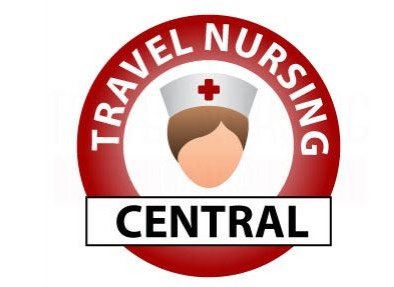
Should you stay or should you go? It all depends on what you’re looking for in a travel nurse contract extension.
By Megen Robbins, Cirrus Medical Staffing
By definition, travel nurses have the opportunity to move from place to place, and hospital to hospital all over the U.S. with every new assignment. Part of the fun is finding the next position offering the pay package you need, the location you want, and the facility that will help you grow professionally.
Most of the informative articles and tips circulating about travel nursing relate to helping you find a new assignment, and yet information about extending your current assignment seems almost absent from the narrative. This article will break down the pros and cons of extensions, and how to talk to your recruiter and facility about this option.
What is an extension?
An extension is when a healthcare traveler chooses to extend their current contracted assignment for an agreed-upon number of weeks. The length of the extension varies depending on what the hospital needs and what you’re willing to do.
Why extensions can be good
It’s easy. For everyone involved, extensions require less work to arrange. All of your paperwork is done, so you won’t have onboarding or orientation at the facility. You have housing set up and you already know your way around the city. Licensing and testing are already complete. Just sign on the dotted line to extend and you’re up and running!
It means you get more time to enjoy your current location. Maybe it’s the new people you’ve met that you’re not ready to leave behind quite yet or the hiking trails you haven’t had time to explore, or maybe you just need more time to think about where you’d like to go next.
You can still negotiate. Usually, recruiters provide the best deal possible on your first contract at a facility, but sometimes you can redistribute expenses into your pay package such as travel stipends, expenses for drug/TB testing and physical, criminal background check (if ordered by facility), or compliance and credentialing costs. However, if you’ve never traveled with a company before, you may have already received things like a sign-on bonus and other one-time-only perks in your first assignment’s pay package, so keep that in mind.
It’s flexible. On new assignments, the number of weeks you’ll be there is set in stone on your contract, and most facilities aren’t interested in shortening the length to appease a traveler. If you’re offered an extension, however, the facility knows you’re acclimated to your unit. Having you stay on, even if only for half the length of your first assignment, is more efficient than orienting a new traveler in your place. Unconventional contract lengths are typical for extensions, so you have more control over how long you stay.
Why extensions can be bad
It’s not in your best interests. Feeling pushed into an extension is the most basic reason why extensions can be bad for you as the traveler. Make sure you communicate to your recruiter how you feel about every aspect of the assignment throughout your contract. If there is something that can be changed to make your experience better, your recruiter can help you consider your options by pinpointing exactly what’s making you unhappy. Otherwise, your recruiter may not know what needs to change and therefore cannot help you in a meaningful way. If your recruiter knows why you’re unhappy and they aren’t actively submitting you elsewhere per your request, it might be time to find a new recruiter.
You’re unhappy at the facility itself. If you’re unhappy at the facility, and other factors don’t make staying worth it (like money), then extending may only be an option for you if no new contracts work out. Again, communicate with your recruiter and make sure they are actively submitting you to new positions so you have a new assignment lined up. One of the beauties of being a travel nurse is that you have the option to move on after a relatively short time, no questions asked.
How extensions come about
You’re approached about it by your recruiter and/or facility. Hospitals typically start to consider extensions up to four weeks prior to the end of your current contract. Sometimes you’ll get more notice; depending on the time of year or census patterns of the facility, hospitals may release their needs well in advance. You’ll be approached by your recruiter to weigh your options when they’re made aware of an opportunity to extend.
You bring the idea to your recruiter. Whenever the thought to extend occurs to you, it’s never too early to let your recruiter know. They can tell the facility you are interested in and start the process of arranging a contract that maximizes your income. Also, keep an open line of communication with your nurse manager so they know you’re interested in staying and they can work on getting any necessary approvals for the contract extension in advance. Also, be prepared to discuss time off requests with the nurse manager and your recruiter. You want to have those ready to go and approved up front to get the contract locked down quickly. Your recruiter can help you navigate an extension even before a facility’s needs are released. Just like you would for a new assignment, the earlier you start hunting – even if you’re looking to stay put – the better your odds of a successful placement.
The bottom line on extensions
Contract extensions should be carefully considered on a case-by-case basis – every assignment is different, and your reasons for staying may change depending on your circumstance. Extensions are a great way to get more of what’s important to you at the time; whether it’s more of the people, more money, more time to explore, or simply more time to find your next destination without a lapse between assignments.
Whatever your reasons to extend, they’re your reasons. Communicate openly with your recruiter and maybe your dilemma, to extend or not to extend, will cease to be a dilemma at all.
About the Author: Megen Robbins is the Marketing Supervisor at Cirrus Medical Staffing, a full-service healthcare staffing agency and travel nurse company. In her spare time, she’s usually hanging out with her two children under age 4, while simultaneously daydreaming about alone time. Find more travel nursing job advice, tips, and news on the Cirrus blog!











